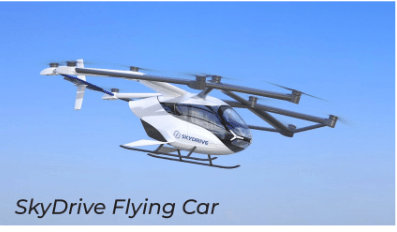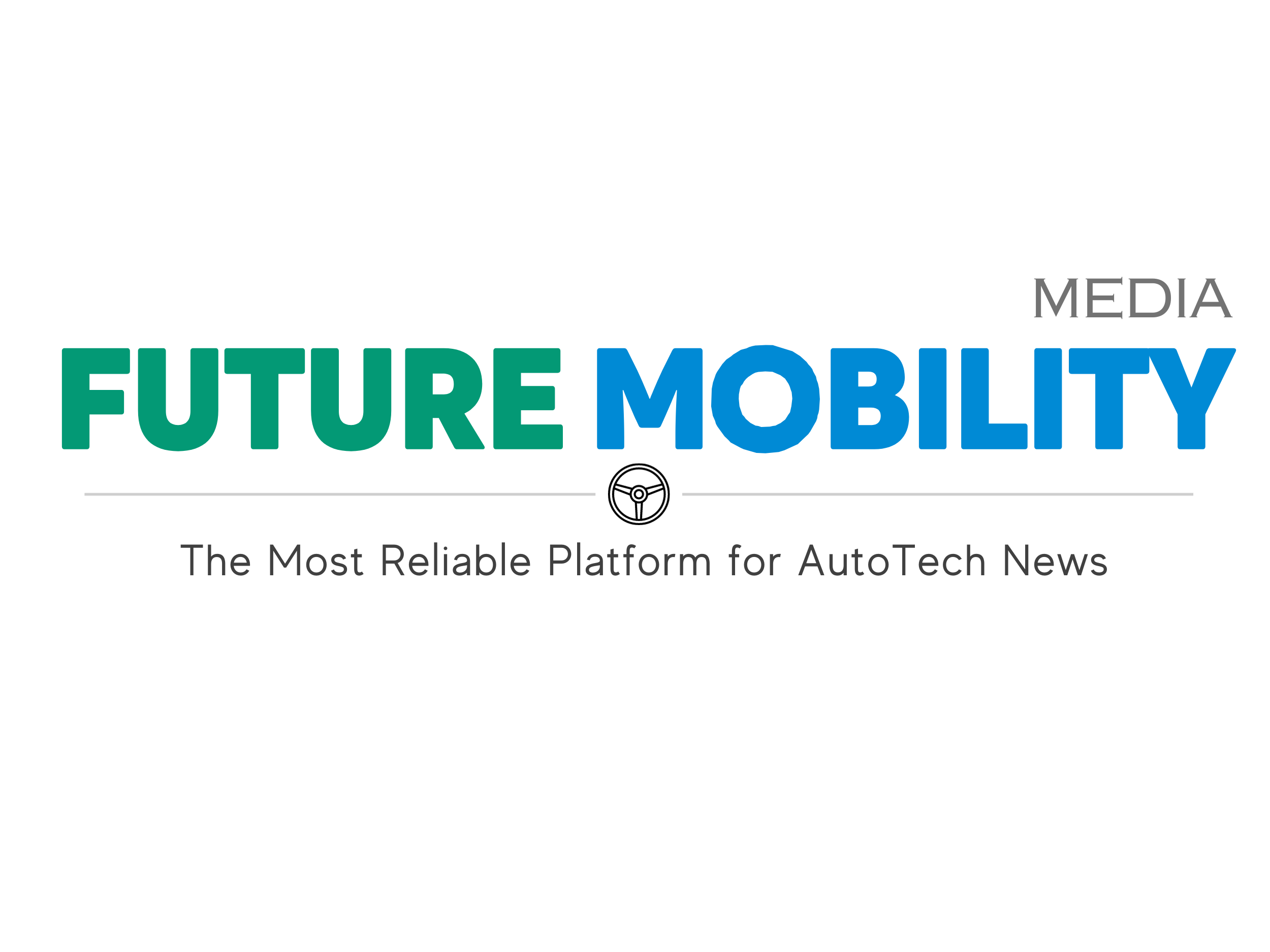Collaborative synergy is driving the automotive industry’s rapid evolution, with partnerships fostering innovation and sustainable mobility solutions, writes Editorial Team, Future Mobility Media.
In the fast-evolving landscape of the automotive industry, success now hinges on collaborative synergy rather than individual prowess. The relentless pace of technological advancements, coupled with stringent regulatory demands and shifting consumer expectations, has created fertile ground for automotive giants to embrace collaborations like never before.
One of the primary drivers behind OEMs adopting a collaborative approach is the increasing role of software in vehicles.
As the industry shifts towards software-defined vehicles, partnerships have become not just strategic choices but necessities for growth in an increasingly competitive market.
Technological Partnerships and Advancements: The Heartbeat of Innovation
The automotive sector has witnessed unprecedented innovations, from autonomous driving to connected car technologies. Today, vehicles can facilitate in-car payments and navigate autonomously without driver intervention, thanks to strategic technological partnerships.
Consumer preferences are evolving rapidly, driven by technological advancements and changing lifestyles. The demand for features like sunroofs in India has surged, signalling a shift towards luxury and comfort in vehicles. Modern consumers seek more than transportation; they desire enhanced driving experiences with advanced infotainment systems, safety technologies, and superior interior designs. To stay ahead, companies must not only meet but exceed these evolving expectations.

“Given the continuously changing Automotive landscape and trends like Autonomous driving, Software-Defined vehicle development, and Electrification that also must be securely connected leads to interesting use cases. Such demands can only be addressed through collaborations & partnerships with players who have experienced such technology, infrastructure, lifecycle management and business logic in various forms. Such a confluence spurs innovation that solves the ever-demanding consumer needs in a secure and sustainable manner,” Satish Sundaresan, Managing Director, Elektrobit India Pvt. Ltd.
Strategic alliances are at the core of these innovations. For example, the partnership between Volkswagen Group and Mobileye Global aims to commercially introduce Level 4 autonomous vehicles, demonstrating how collaboration accelerates cutting-edge technology development. Similarly, Bengaluru-based startup Minus Zero’s collaboration with Ashok Leyland is poised to revolutionize commercial trucking with autonomous solutions, highlighting startups’ role in industry-wide innovation.

In another significant initiative, BMW Group and Tata Technologies are establishing an automotive software and IT development hub in India. This partnership focuses on critical areas such as software-defined vehicles, automated driving, and digital services.
Adding to this wave of innovation, Suzuki Motor Corporation, in collaboration with SkyDrive Inc., has initiated the production of flying cars at a Suzuki-owned manufacturing plant in Japan. This facility can produce 100 electric vertical take-off and landing (eVTOL) flying cars annually, representing the next frontier in transportation, known as Advanced Air Mobility (AAM) or Urban Air Mobility (UAM).
Technological advancements are also transforming fleet management solutions, crucial for enhancing efficiency and safety in logistics. Technologies improving navigation for truck drivers across diverse terrains and enabling data-driven decisions by fleet managers contribute significantly to profitability and sustainability. VE Commercial Vehicles’ collaboration with iTriangle Infotech aims to redefine fleet management in India and international markets. Similarly, Tata Passenger Electric Mobility Ltd’s partnership with Vertelo for delivering 2,000 XPRES-T EVs underscores the critical role of strategic partnerships in shaping the future of fleet management.
These alliances enable companies to leverage each other’s strengths and expertise to develop innovative solutions that enhance efficiency, safety, and sustainability. Such partnerships not only push the boundaries of automotive technology but also ensure that the industry remains responsive to the dynamic needs of modern consumers. By fostering collaboration and innovation, the automotive sector continues to deliver advanced, reliable, and enjoyable driving experiences that meet the high standards set by today’s tech-savvy and comfort-oriented customers.
Environmental Push
The transition towards sustainable mobility is another significant driver of collaborations in the automotive industry. India, in particular, is making substantial strides towards greener transportation solutions. SUN Mobility’s partnership with IndianOil to establish a vast battery-swapping infrastructure network is a testament to this effort. This collaboration aims to set up over 10,000 battery-swapping stations across 40+ cities within the next three years, addressing critical barriers to widespread electric vehicle (EV) adoption.
Such initiatives are crucial in overcoming challenges like range anxiety, charging time, and upfront battery costs, making EVs more accessible and convenient for consumers. These partnerships not only support the government’s vision for a cleaner environment but also promote innovation and investment in the EV sector, setting a precedent for future collaborations focused on sustainable mobility solutions.
Additionally, VE Commercial Vehicles is introducing Volvo LNG trucks into the Indian market as part of its alternative fuel segment, offering more sustainable and efficient transport solutions. Daimler India Commercial Vehicles is also planning to launch its hydrogen-fuel bus in India soon, further advancing alternative fuel technologies.
To bolster electric vehicle (EV) initiatives, the European Union (EU) and India have partnered to foster startups developing battery recycling technologies for EVs.
In the corporate mobility sector, Rego has partnered with Reliance Jio-BP to enhance corporate car rental services across India. Leveraging Jio-BP’s extensive charging infrastructure, Rego aims to deliver seamless, efficient, and eco-friendly travel solutions for corporate customers, driving the adoption of electric vehicles (EVs) in India’s expanding corporate mobility sector. To meet its EV needs, Rego has collaborated with prominent electric vehicle manufacturers like Tata Motors, BYD, and MG.
Localization: Strengthening Domestic Capabilities
Collaborations are also pivotal in boosting localization efforts, aligned with India’s “Make in India” initiative. EVR Motors, an Israel-based electric motor manufacturer, has established a production plant in Manesar, Haryana, leveraging local resources and talent. By partnering with Indian automotive leaders, EVR Motors supports India’s transition towards sustainable transportation solutions, boosting local employment and technology transfer.
In another strategic move to capitalize on India’s growing automotive market, Minda Corporation Limited has formed a 50:50 joint venture with HSIN Chong Machinery Works Co. Ltd. (HCMF) from Taiwan. By localizing production, Minda Corporation aims to cater to the rapidly expanding market, offering cutting-edge technology and state-of-the-art manufacturing capabilities.
The automotive industry is witnessing a surge in international partnerships to enhance local expertise and market influence. Skoda Auto, after over twenty years in the Indian market, is exploring potential local partnerships to leverage market proximity and procurement expertise, enhancing market responsiveness and operational efficiency.
Additionally, Volkswagen is reportedly in discussions about partnering on passenger car production in India. This follows Volkswagen’s supply agreement with India’s Mahindra, involving key electric components from Volkswagen’s open platform for electric vehicles, highlighting the importance of strategic collaborations in advancing electric mobility and solidifying market positions in the evolving automotive landscape.
Another notable example is the partnership between Chinese electric vehicle manufacturer Leapmotor and the Stellantis group, entering one of the world’s fastest-growing EV markets. This collaboration aims to introduce affordable electric cars, intensifying competition in the EV segment. Leveraging Stellantis’ market knowledge and Leapmotor’s innovative EV technologies, the partnership aims to offer high-quality, affordable EVs to consumers, making sustainable transportation more accessible.
The role of semiconductors in automotive technology has become increasingly pivotal, especially highlighted by past supply shortages.
Recognizing the importance of self-reliance in advanced semiconductors, the Indian government has been proactive in bridging technological and manufacturing gaps through global collaborations and incentive schemes like the Production Linked Incentive (PLI) program.
Moreover, Tata Electronics has partnered with Powerchip Manufacturing Corporation of Taiwan to establish India’s first semiconductor fabrication plant in Gujarat. This initiative is a significant milestone for India’s semiconductor industry, reducing dependence on imports and strengthening India’s position in the global semiconductor supply chain. CG Power is also discussing setting up another semiconductor facility in Gujarat with Renesas Electronics Corp, further enhancing India’s semiconductor manufacturing capabilities. These efforts are crucial in meeting the growing demand for semiconductors driven by the increasing adoption of electric and autonomous vehicles.
Role of Academia: Future of Mobility
In pursuit of innovation and excellence, automotive companies are increasingly turning to academic institutions as pivotal allies. These collaborations aim to bridge the gap between industry demand for specialized skills and current academic curricula. By establishing innovation and excellence centres, academia and industry collaborate to update curricula and equip students with essential skills for the modern automotive landscape.
Beyond providing educational opportunities, these collaborations offer students practical experience and industry exposure. Working on real-world projects alongside industry experts prepares students to become future leaders in automotive engineering, enhancing their employability and enriching their learning experience.
A notable example is Volvo Group’s strategic partnerships with Manipal University, KIIT University, and SRM University. These partnerships focus on key areas of automotive engineering, including mechanical, electrical, electronics, and computer science. Volvo Group’s initiatives include mentorship programs, internships, and pre-placement offers, ensuring that students are well-prepared for real-world challenges. By investing in these academic collaborations, Volvo nurtures top talent from the start of their careers, elevating engineering education standards in India.
Numerous other companies are also forging partnerships with academic institutions to address industry challenges and drive innovation. These collaborations are crucial for advancing automotive technologies and preparing India for a future driven by sustainable mobility solutions.
A significant example is the collaboration between SiCSem Private Limited and the Indian Institute of Technology (IIT) Bhubaneswar, aimed at indigenizing Silicon Carbide (SiC) crystal growth. This partnership focuses on high-volume production of 150 mm and 200 mm SiC wafers, reducing dependence on imported semiconductor materials and strengthening India’s capability to produce essential components domestically. This initiative enhances the resilience of the automotive supply chain, ensuring continuity and stability in critical component availability.
Additionally, L&T Technology Services Limited (LTTS) and IIT Hyderabad have collaborated to advance research in Advanced Driver Assistance Systems (ADAS) and Cellular Vehicle-to-Everything (CV2X) communication. This partnership paves the way for advancements in connected and autonomous vehicles, highlighting the pivotal role of academic partnerships in driving the next generation of automotive technologies.
Conclusion
In conclusion, collaborations are pivotal in propelling the automotive industry towards innovation, efficiency, and sustainability. By pooling resources and expertise, companies forge ahead in meeting evolving consumer demands and regulatory requirements. Startups play a crucial role in driving innovation, while academia provides essential support in nurturing talent and advancing technological frontiers. India’s automotive sector accelerates innovation, strengthens localization efforts, and drives sustainable mobility solutions, shaping a future of mobility that is connected, electric, and autonomous.
The future of the automotive industry lies in strategic partnerships that foster innovation, enhance competitiveness, and drive sustainable growth. As companies navigate the complexities of an evolving landscape, collaborations will continue to be the cornerstone of success, driving the automotive industry towards a future defined by innovation, efficiency, and sustainability.

Satish Sundaresan
Managing Director
Elektrobit India Pvt. Ltd.



